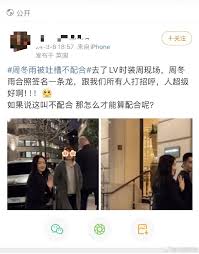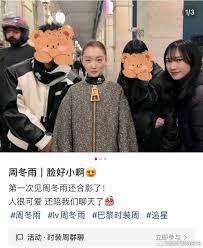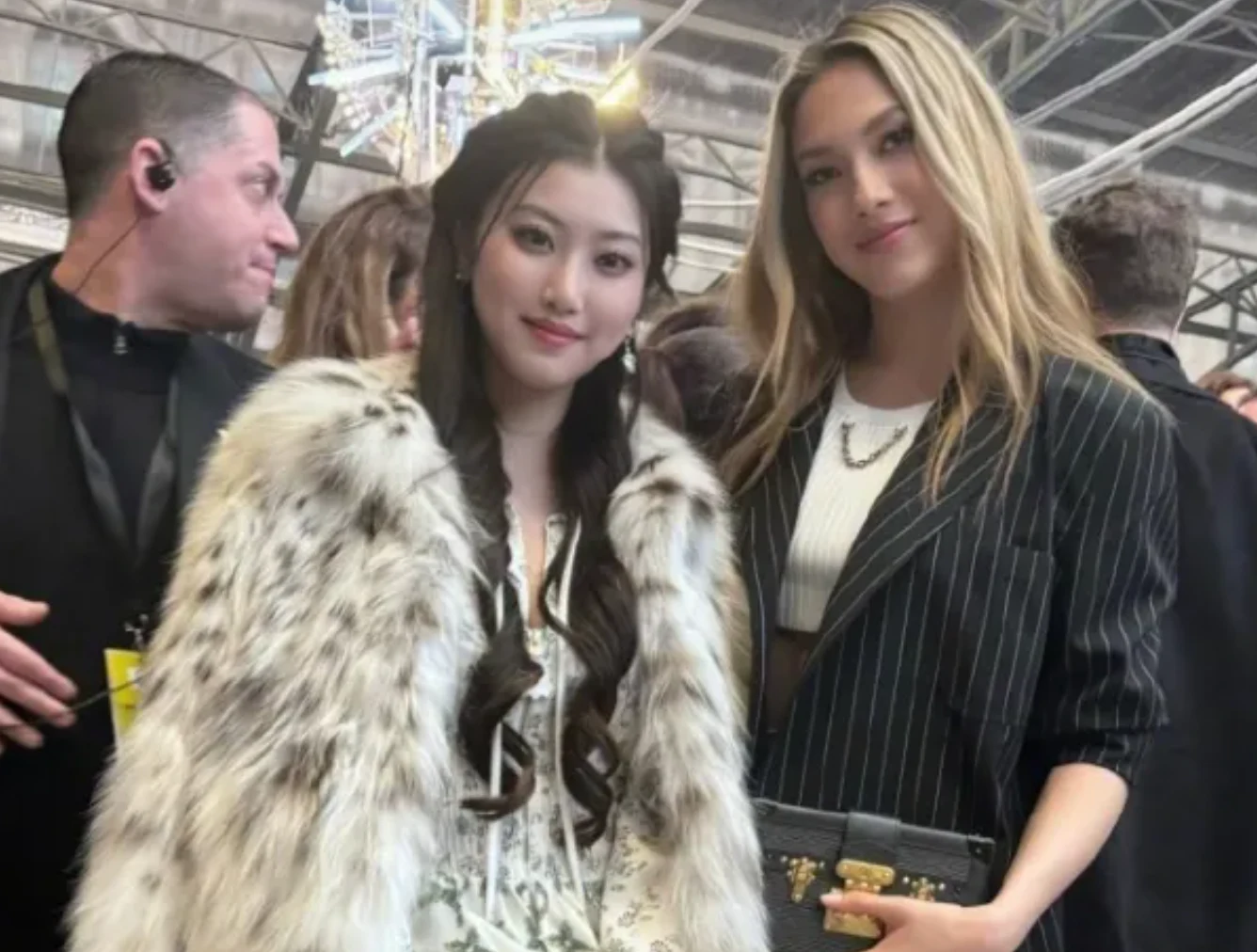A social media storm (Red, douyin, Wechat) with over 130 million views was sparked when a China VIP client accused Louis Vuitton V’s ambassador Zhou Dongyu of arrogant behavior during a Paris fashio Show.
A 20-year-old VIP client of Louis Vuitton, based in London and Shanghai, known on Instagram as Yvette, publicly accused a brand ambassador from China of being unfriendly and uncooperative during a meet-and-greet event at Paris Fashion Week on March 5. (source JIngdaily)
Yvette’s critical remarks about Zhou Dongyu, an award-winning actress and the ambassador in question, quickly caught the attention of social media users and were widely shared on Weibo, leading to the issue becoming a hot topic. The hashtag “Zhou Dongyu criticized for being uncooperative” gained substantial traction, amassing million views.

Despite the widespread debate and scrutiny, neither Louis Vuitton nor Zhou Dongyu has responded to the allegations. This situation poses a dilemma: should they address the controversy for damage control, or disregard it, considering it an overblown matter?

During the event, which Louis Vuitton had arranged for Yvette and other top clients, ambassadors typically have the role of engaging with VIPs to enhance the brand experience. Yvette, through her Instagram, contrasted Zhou’s behavior with that of other celebrities at the meet-and-greet, expressing disappointment with Zhou’s apparent reluctance to participate actively.
The badbuzz against Zhou on Chinese social media included references to past controversies, with opinions divided between those critical of her attitude and others defending her, citing her achievements and challenging times. Following the viral spread of her complaint, Yvette clarified that her post was not intended to cause an uproar but was merely a personal expression of dissatisfaction.
This incident highlights the risks associated with celebrity endorsements for brands, underscoring the importance of how they manage such situations. Ignoring the issue could mean losing control over the narrative, while addressing it might fuel further debate.
How to react ?
In situations like these, brands face a delicate balancing act between maintaining their image and navigating the complexities of public relations, especially in the highly digital and socially interconnected world we live in today.
Whether Louis Vuitton and Zhou Dongyu should comment on the accusations for damage control or let the conversation run its course is a nuanced decision that involves several considerations:
- The Power of Social Media Narratives: With the accusation against Zhou Dongyu going viral and generating significant attention, there’s a risk that silence might be interpreted as indifference or even agreement with the criticism. Social media has the power to amplify narratives, and without a response, the brand and the ambassador might lose control over the story being told.
- Brand Image and Loyalty: For a luxury brand like Louis Vuitton, the perception of exclusivity and high-quality service is crucial. VIP clients, such as Yvette, often expect not just premium products but also exceptional experiences. Addressing the situation publicly could reassure current and potential clients that the brand values their satisfaction and is attentive to their concerns.
- Celebrity Endorsements: Celebrity ambassadors play a significant role in brand marketing, acting as the human face of the brand to the public. How Zhou Dongyu is perceived can impact Louis Vuitton’s image. A thoughtful response could mitigate negative associations, reinforcing the brand’s commitment to its values and its ambassadors’ professionalism.
- Public Sentiment: The reaction on social media, including the defense of Zhou Dongyu by some, indicates divided opinions. Engaging in a manner that is respectful and considerate can help navigate the public discourse, potentially turning a negative situation into an opportunity to demonstrate the brand’s values.
- Potential for Resolution: Addressing the issue, either through a statement or other forms of outreach, opens the door for reconciliation and learning. It could be an opportunity to highlight the brand’s and the ambassador’s commitment to growth and customer satisfaction.
However, any response should be carefully crafted. It should acknowledge the concerns raised, express a commitment to high standards of customer interaction, and, if appropriate, explain any misunderstandings without escalating the situation. The response should aim to calm the waters rather than stirring them further.
Take position , be the judge
Choosing to comment or not is a strategic decision that depends on a variety of factors, including the brand’s values, the nature of the accusations, public sentiment, and the potential impact on the brand’s reputation. In some cases, a well-considered response can help mitigate damage and even strengthen the brand’s relationship with its audience. In others, letting the conversation run its course might be the best course of action, especially if the brand believes the issue will not have a long-term impact.
Read more

